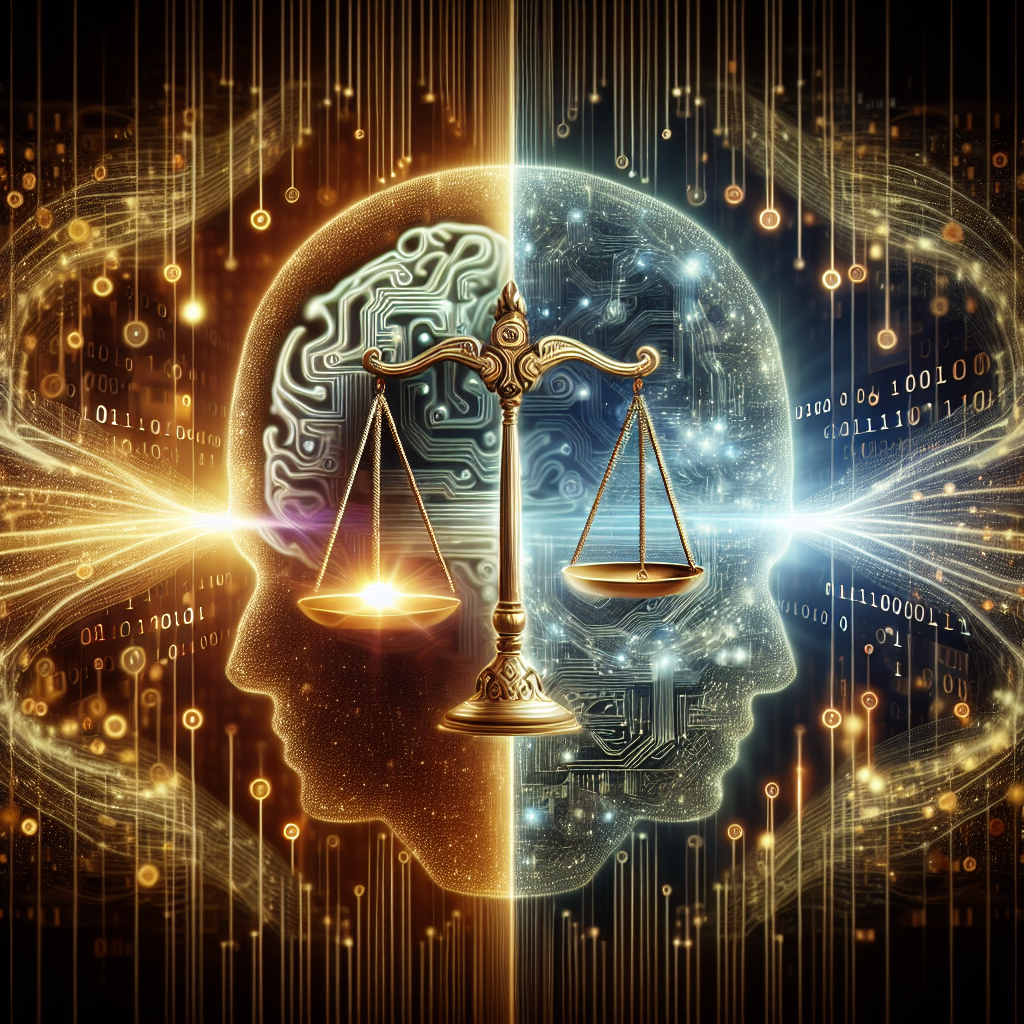Artificial intelligence (AI) has rapidly advanced in recent years, and its applications are becoming increasingly widespread in various industries. AI-driven solutions have the potential to revolutionize how we live and work, but they also raise important ethical questions that must be carefully considered.
One of the key ethical implications of AI-driven solutions is the issue of bias. AI algorithms are only as good as the data they are trained on, and if that data is biased, the AI system will perpetuate that bias. For example, if a facial recognition system is trained on a dataset that is predominantly made up of white faces, it may struggle to accurately identify faces of other races. This can have serious consequences, such as misidentifying individuals or perpetuating racial stereotypes.
Another ethical concern is the impact of AI on jobs and the economy. As AI technology becomes more advanced, there is a risk that it will automate many jobs, leading to widespread unemployment and economic disruption. This could exacerbate existing inequalities and widen the gap between the rich and the poor. It is important for policymakers and businesses to consider how AI-driven solutions will impact the workforce and to develop strategies to mitigate any negative effects.
Privacy is another major ethical concern when it comes to AI-driven solutions. AI systems often collect and analyze vast amounts of data about individuals, raising concerns about surveillance and the potential for abuse of personal information. Companies and governments must be transparent about how they are using AI technology and ensure that they are following strict privacy regulations to protect individuals’ rights.
There are also ethical implications related to the use of AI in decision-making processes. AI algorithms are often used to make important decisions in areas such as healthcare, finance, and criminal justice. However, these algorithms are not infallible and can make mistakes or perpetuate biases. There is a need for greater transparency and accountability in how AI-driven decisions are made to ensure that they are fair and unbiased.
In addition to these ethical concerns, there are also questions about the potential for AI to be used for malicious purposes. As AI technology becomes more advanced, there is a risk that it could be used to create autonomous weapons or to carry out cyber attacks. It is crucial for policymakers to consider the ethical implications of AI-driven solutions and to put in place regulations to prevent misuse of this technology.
FAQs:
Q: Are AI-driven solutions inherently biased?
A: AI algorithms are not inherently biased, but they can become biased if they are trained on biased data. It is important for developers to carefully consider the data they are using to train AI systems and to take steps to mitigate bias.
Q: How can we ensure that AI-driven decisions are fair and unbiased?
A: To ensure that AI-driven decisions are fair and unbiased, it is important to have transparency and accountability in the decision-making process. This includes auditing AI algorithms, providing explanations for decisions, and regularly reviewing and updating algorithms to ensure they are free from bias.
Q: What are some ways to address the ethical implications of AI-driven solutions?
A: There are several ways to address the ethical implications of AI-driven solutions, including developing strict privacy regulations, ensuring transparency and accountability in decision-making processes, and promoting diversity in AI development teams to reduce bias.
In conclusion, AI-driven solutions have the potential to bring about significant benefits, but they also raise important ethical questions that must be carefully considered. It is crucial for policymakers, businesses, and developers to address these ethical implications and to ensure that AI technology is used responsibly and ethically. By taking proactive steps to mitigate bias, protect privacy, and promote fairness and accountability, we can harness the power of AI for the greater good.

